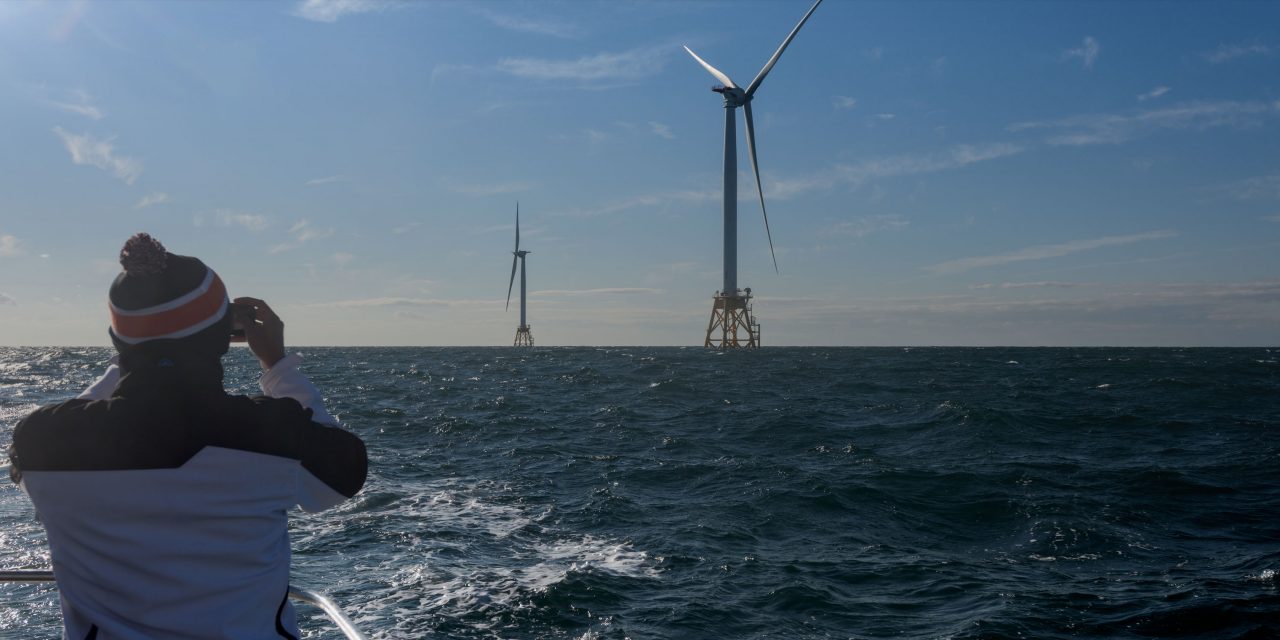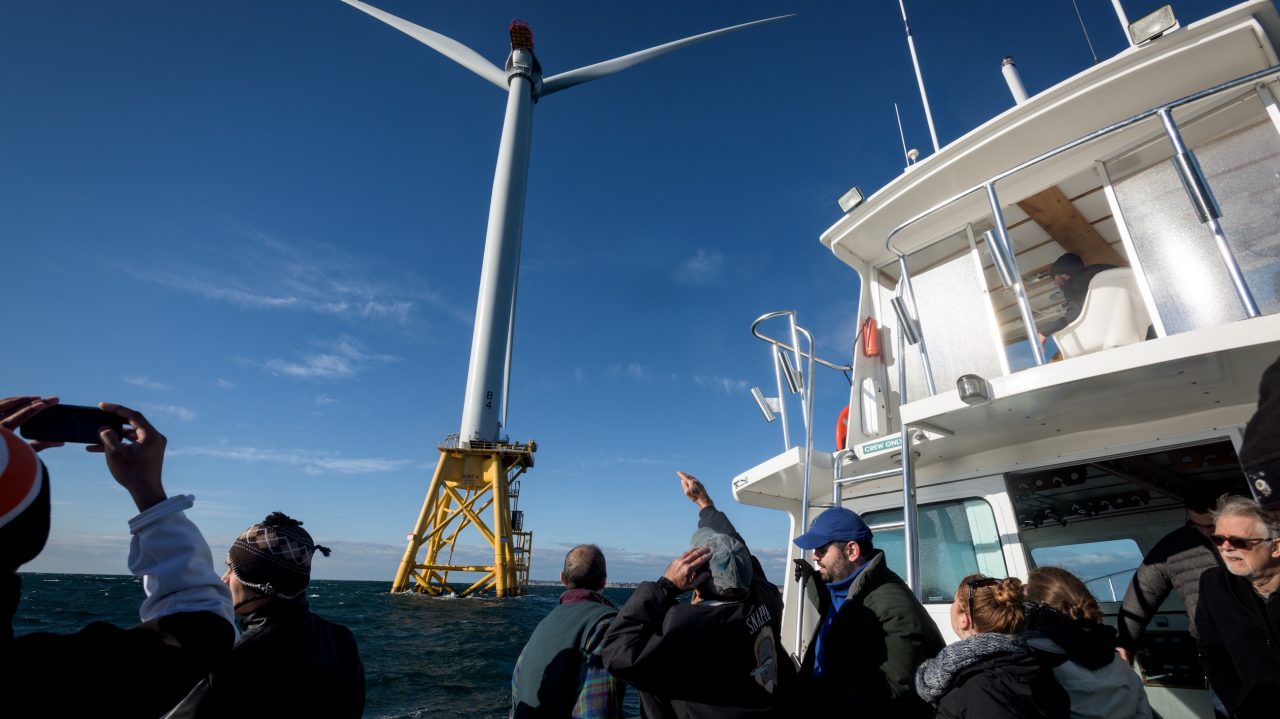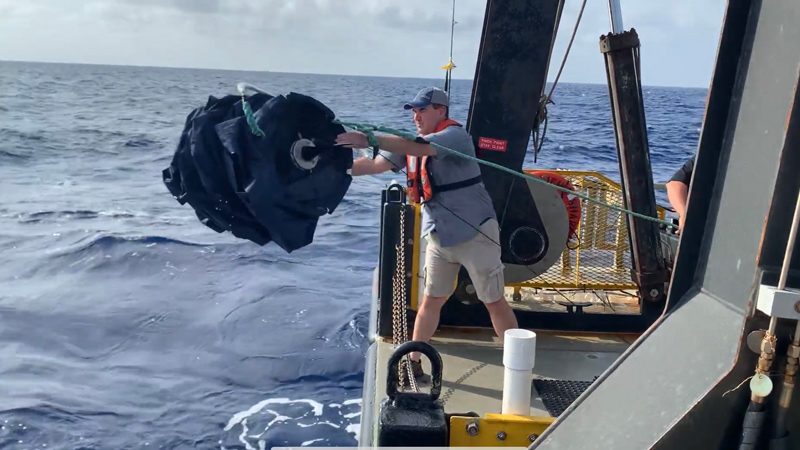
Environmental Science and Management (ESM) Degree Program

Join us for an integrative approach to our common environmental future
Looking to make a real impact on the environment? UD's Master of Science in Environmental Science and Management program may be the perfect fit for you. Our curriculum is designed to provide you with the skills and knowledge you need to address pressing environmental challenges, including climate change, fisheries, land use, and just energy transition.
Early consideration for applications is December 15; final deadline is June 30. Note: This program begins in Fall semesters.
This professional degree equips students with practical decision-making and management skills applicable to jobs in the environmental sector.
Students select a specialized course track—climate, earth resources or marine—and are assigned an individual faculty advisor. They begin the program in the fall and end the program with a group capstone experience that considers a real-world issue for an outside client, completing the 36-credit degree program in 21 months.
Students admitted to ESM often hold undergraduate degrees in environmental science or studies, natural resource management, biology, geology, marine science, meteorology, economics, policy, planning and sociology.
KEY NUMBERS
21 months
Program duration
$1,028
Cost per credit
36
Credit hours

Students graduating with the Master of Science in ESM will be prepared to become environmental planners, environmental scientists, project managers, and environmental compliance specialists at all levels of government and in the private sector.
Area |
Requirements |
Credit Hours |
Management Foundation |
Choose one:
UAPP 707 Public Policy Analysis UAPP 690 Seminar: Public Administration
and (required)
MAST 675 Natural Resource Economics |
6 |
Environmental Science Foundation |
ENSC601 Fundamentals of Environmental Science |
3 |
Data Analysis |
Choose two:
SPPA 704 Advanced Quantitative Methods SPPA 721 Data Science Tools for Evidence-based Policy GEOG 604 GIS for Environmental Research |
6 |
Science-Management Connections |
Choose one: MAST 610 Coupling Human to Natural Systems MAST 628 Offshore Wind Power |
3 |
Marine Science Track |
Pick two science courses:
MAST602 Physical Oceanography
Pick two management courses:
MAST614 Environmental Justice in Disasters (SPPA614/GEOG614) MAST628 Offshore Wind Power MAST662 Climate Change: Policy, Equity and Mitigation |
12 |
Climate Science Track |
Pick two science courses:
MAST609 The Ocean and Climate Change |
12 |
Pick two management courses:
ENEP626 Climate Change: Science, Policies & Political Economy MAST662 Climate Change: Policy, Equity and Mitigation MAST688 Climate Change Economics |
|
|
Earth Resources Track |
Pick two science courses:
GEOL612 (1 credit) Geology of Strategic Mineral Deposits and GEOL613 (2 credits) Analytics of Minerals for Risk Management
Pick two management courses:
MAST 676 Environmental Economics |
12 |
Capstone Experience or Analytical Paper |
Required: MAST 663 Decision Tools for Policy Analysis and Capstone Experience MAST 664 Environmental Issue Capstone
or
Analytical Paper MAST 865 MMP Analytical Paper |
6 |
|
TOTAL CREDIT HOURS |
36 |
Normal, full-time progress (capstone option) follows the below schedule:
| Year 1 | Year 2 |
|---|---|
Fall (9 credit hours) MAST 675 Nat Res Economics MAST 610 Coupling Natural & Human Systems or MAST 628 Offshore Wind Power ENSC 601 Fundamentals of Env Science |
Fall (9 credit hours) UAPP 707 Policy Analysis MAST 663 Decision Tools for Policy Analysis Track Elective 2 or Data Analysis Elective 2 |
Spring (9 credit hours) Data analysis elective 1 Track Elective 1 Track Elective 2 or Data Analysis Elective 2 |
Spring (9 credit hours) MAST 664 Environmental Issue Capstone Track Elective 3 Track Elective 4 |
The capstone is a central part of the student experience. It is designed to address a specific real-world policy problem and is sponsored by an outside client. Students work in small groups on the assigned project using skills and knowledge acquired in the classroom. The outside sponsor can be at the local, national, or international level and might, for example, include agencies such as Delaware’s Department of Natural Resources and Environmental Control, the U.S. Environmental Protection Agency, the U.S. Department of the Interior, the World Bank, or the Food and Agriculture Organization of the United Nations. At the beginning of your second year, ESM faculty will find sponsors who need a talented group of graduate students to assist them with a real-world project that can be completed in one semester. Deliverables could include a report, presentation, budget, or work plan. Sponsors change from year to year. Each capstone group will be advised by at least one ESM faculty member.
Capstones reflect the applied nature of this program and will prepare students for working in government, non-profit, and for-profit organizations. It is a 3-unit course (MAST 664 Environmental Issue Capstone) in your last semester. The capstone course is only open to students in the MS in Environmental Science and Management and the MS in Environmental Economics. Students entering the capstone course will be required to take Decision Tools for Policy Analysis, MAST 663/UAPP 663, in the preceding semester. Capstone projects will develop and build practical research, collaboration, and communication skills that employers value.
Analytical Paper option
In special circumstances (e.g., if interested in seeking a research experience and continuing to a PhD), a student may write an analytical paper—an article-length paper targeting publication in an appropriate peer-reviewed journal—in lieu of the capstone experience. To do so, the student however must secure the approval of a CEOE-affiliated faculty member to offer guidance, direction, and development of the paper. The paper is evaluated by the faculty research advisor, although actual publication is not required.
Admitted students will be required to select a track within the ESM degree. The three tracks are climate science, earth resources, and marine science.
Climate science track

Subject areas: offshore wind power, adaptation to climate including sea level rise, and weather extremes
| Year 1 example curriculum |
|---|
Fall (9 credit hours) MAST 675 Nat Res Economics MAST 610 Coupling Natural & Human Systems or MAST 628 Offshore Wind Power ENSC 601 Fundamentals of Env Science |
Spring (9 credit hours) GEOG 604 GIS for Environmental Research GEOG 612 Physical Climatology GEOG 619 Climate Change Adaptation |
| Year 2 example curriculum |
|---|
Fall (9 credit hours) UAPP 707 Policy Analysis MAST 663 Decision Tools for Policy Analysis MAST 609 The Ocean and Climate Change |
Spring (9 credit hours) MAST 664 Environmental Issue Capstone ENEP626 Climate Change: Science, Policies & Political Economy SPPA 704 Advanced Quantitative Methods |
Earth resources track

Subject areas: hydrology, environmental geology and critical minerals
| Year 1 example curriculum |
|---|
Fall (9 credit hours) MAST 675 Nat Res Economics MAST 610 Coupling Natural & Human Systems or MAST 628 Offshore Wind Power ENSC 601 Fundamentals of Env Science |
Spring (9 credit hours) GEOG604 GIS for Environmental Research GEOG632 Environmental Hydrology UAPP611 Regional Watershed Management |
| Year 2 example curriculum |
|---|
Fall (9 credit hours) UAPP 707 Policy Analysis MAST 663 Decision Tools for Policy Analysis GEOL621 Environmental and Applied Geology |
Spring (9 credit hours) MAST 664 Environmental Issue Capstone MAST676 Environmental Economics SPPA 704 Advanced Quantitative Methods |
Marine science track

Subject areas: fisheries, offshore wind power, sea level rise, and coastal land use
| Year 1 example curriculum |
|---|
Fall (9 credit hours) MAST 675 Nat Res Economics MAST 610 Coupling Natural & Human Systems or MAST 628 Offshore Wind Power ENSC 601 Fundamentals of Env Science |
Fall (9 credit hours) MAST 675 Nat Res Economics MAST 610 Coupling Natural & Human Systems or MAST 628 Offshore Wind Power ENSC 601 Fundamentals of Env Science |
| Year 2 example curriculum |
|---|
Fall (9 credit hours) UAPP 707 Policy Analysis MAST 663 Decision Tools for Policy Analysis MAST621 Coastal Field Biology |
Spring (9 credit hours) MAST 664 Environmental Issue Capstone MAST 609 The Ocean and Climate Change MAST 676 Environmental Economics |

Maddie Brien
mbrien@udel.edu
Degree track: Marine science

Lydia Clark
lrclark@udel.edu
Degree track: Marine science
Personal website

Lannis James Dodge
ldodge@udel.edu
Degree track: Marine science
Personal website

Christina Marchak
cmarchak@udel.edu
Degree track: Marine science
Personal website

Travis Pluck
tpluck@udel.edu
Degree track: Climate science
Personal website

Kayla Rexroth
krexroth@udel.edu
Degree track: Marine science
Personal website
Capstone highlights
The culminating experience for students in the ESM program is their capstone project, where they tackle a real-world project for a client. Our current cohort requested to work with the National Oceanic and Atmospheric Administration (NOAA).

In Fall 2024, Dr. Steve Thur, UD alumnus and Assistant Administrator for Oceanic and Atmospheric Research and Acting NOAA Chief Scientist, agreed to be our Capstone client for this new degree program. He requested our Capstone class to write an independent report on developing best practices for community engagement in marine carbon dioxide removal (mCDR) research.
Four students, Lannis Dodge, Christina Marchak, Travis Pluck, and Kayla Rexroth, presented their database and final report to Dr. Thur's office and the NOAA Research Ocean Acidification Program at NOAA Headquarters in Silver Spring, Maryland on May, 9, 2025. They also spent the day at NOAA visiting with staff from NOAA Science on a Sphere, NOAA Office of Habitat Conservation, NOAA Climate Program Office, and NOAA Ocean Exploration Research.
